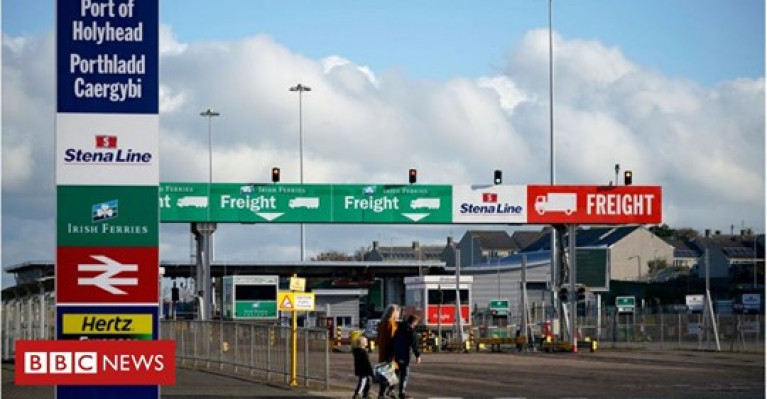Displaying items by tag: Anglesey, Wales
Search for Missing Irish Ferries Crew Member Leads to Body Found
In the search for a missing Irish Ferries crew member a body of a man has been discovered.
North Wales Police have confirmed that the discovery was made on the shore near Ynys Y Fydlyn in Anglesey on Wednesday morning.
Formal identification is yet to take place, but the family of the missing ferry crew member have been informed.
A police spokesman said: "Shortly after 11am today North Wales Police were contacted by a member of the public reporting the discovery of a body on the shore, near to Ynys Y Fydlyn, Anglesey.
"Police officers, supported by partner agencies, attended the scene and confirmed that the body was that of a deceased male.
Further coverage avaialble from NorthWalesLive here.
Ferry Related Brexit Lorry Park Request for Anglesey Industrial Estate Rejected
In north Wales a request to allow Anglesey Showground's park and ride to be used to host a post-Brexit lorry facility has been rejected by council leaders.
As BBC News reports the land is needed for a potential customs check on HGVs arriving from the Republic of Ireland at the Port of Holyhead.
But the council's executive rejected the bid by the Anglesey Agricultural Society to use the park and ride site on Mona Industrial Estate.
The land is leased to the showground by the council.
The council leadership said the proposal was "wholly inappropriate" and would lead to "round the clock traffic" for communities near the showground and industrial estate where the facility would be housed.
Holyhead is the second busiest passenger ferry port in the UK, with ships carrying more than two million people between Wales and Ireland every year.
The port also sees more than 400,000 freight lorries crossing the Irish Sea annually.
More here from the ferry port related developments.






























































